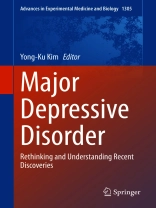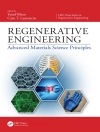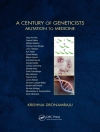This book reviews all aspects of major depressive disorder (MDD), casting light on its neurobiological underpinnings and describing the most recent advances in management. The book is divided into four sections, the first of which discusses MDD from a network science perspective, highlighting the alterations in functional and structural connectivity and presenting insights achieved through resting state functional MRI and the development of neuroimaging-based biomarkers. The second section examines important diagnostic and neurobiological issues, while the third considers the currently available specific treatments for MDD, including biofeedback, neurofeedback, cognitive behavioral therapy, acceptance and commitment therapy, neuromodulation therapy, psychodynamic therapy, and complementary and alternative medicine. A concluding section is devoted to promising emerging treatments, from novel psychopharmacological therapies through to virtual reality treatment, immunotherapy, biomarker-guided tailored therapy, and more. Written by leading experts from across the world, the book will be an excellent source of information for both researchers and practitioners.
Tabela de Conteúdo
Section I. Re-thinking depression from a network perspective.- Chapter 1. Phenotype network and brain structural covariance network of major depression.- Chapter 2. Task MRI-based functional brain network of major depression.- Chapter 3. White matter-based structural brain network of major depression.- Chapter 4. The application of a machine learning-based brain MRI approach in major depression.- Chapter 5. Resting state functional MRI in major depression.- Chapter 6. Development of neuroimaging–based biomarkers in depressive disorder.- Section II. Current diagnostic and neurobiological issues.- Chapter 7. Challenges and strategies for current classifications of depressive disorders: proposal for future diagnostic standards.- Chapter 8. Epigenetics: a missing link between early life stress and depression.- Chapter 9. Glia- neuron communications and gut-brain axis in depression.- Chapter 10. Apoptosis and proliferation markers in major depression.- Chapter 11. A load to findclinically useful biomarkers for depression.- Chapter 12. Pharmacogenomic tests for diagnosis and treatment prediction in depression.- Section III. Current specific treatments for depression.- Chapter 13. Biofeedback and neurofeedback for depression: a critical review.- Chapter 14. Cognitive behavioral therapy and mindfulness based cognitive therapy for depressive disorders.- Chapter 15. Acceptance Commitment Therapy (ACT) for major depressive disorder.- Chapter 16. Neurostimulation therapies in depressive disorders.- Chapter 17. Ketamine in major depression : New rapid antidepressant.- Chapter 18. Psychodynamic therapy in depressive disorders.- Chapter 19. Well-being therapy in depressive disorders.- Chapter 20. Complementary and alternative medicine in the treatments of depressive disorders.- Chapter 21. Current psychopharmacology algorithm for major depressive disorder.- Section IV. Promising future treatments for depression.- Chapter 22. Novel psychopharmacology for depressive disorders.- Chapter 23. Cannabinoid agents for depressive disorders.- Chapter 24. Virtual Reality for the treatment of depressive disorders.- Chapter 25. Epigenetic Therapy in depressive disorders.- Chapter 26. Induced pluripotent stem (i PS) cells technology: potential therapeutic targets for depression.- Chapter 27. Vaccination and immunotherapy for major depression.- Chapter 28. Psychedelic Medicines in major depression: progress and future challenges.- Chapter 29. Precision Psychiatry: Biomarker guided Tailored Therapy for Effective Treatment and Prevention in major depression.
Sobre o autor
Yong-Ku Kim, MD, Ph D is a Professor of Psychiatry at College of Medicine, Korea University. He received a MD degree from College of Medicine, Korea University in 1987 and a PHD in psychiatry from Korea University in 1998. Dr. Kim has been affiliated with Korea University since 1998, first as an assistant professor (1998-2000), then as associated professor (2001-2005), professor (2006- present). For the past 20 years, his professional activities have extended beyond the area of pure clinical or research work. Dr. Kim has well over 200 publications in peer-reviewed international journals, including Biological Psychiatry, Molecular Psychiatry, Clinical Journal of Psychiatry, and Progress in Neuropsychopharmacology and Biological Psychiatry and 30 publications of book chapters and have made over 90 academic presentations in my area of interest. Dr. Kim is a fellow of Collogicum Internationale Neuropsychopharmacologicum, International Society for Affective Disorders, World Federation of the Society of biological Psychiatry. He currently sits on the editorial boards of some leading academic journals in the field of neurobiology, including Progress in Neuropsychopharmacology and Biological Psychiatry, Psychiatry Investigation, World Journal Psychiatry, Annals of Depression and Anxiety, Psychiatry Journal and so on. Dr. Kim received prestigious awards such as Astrageneca Award and Dr. Paul Janssen Schizophrenia Research Award.












